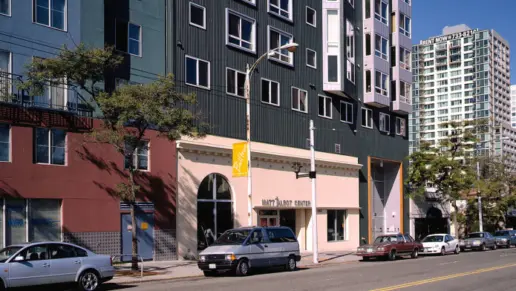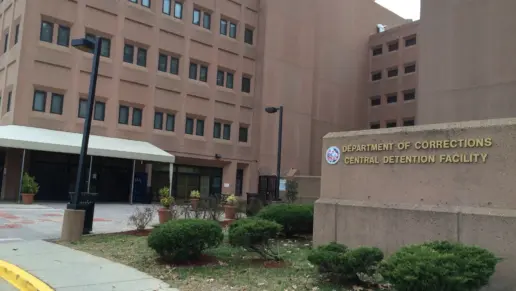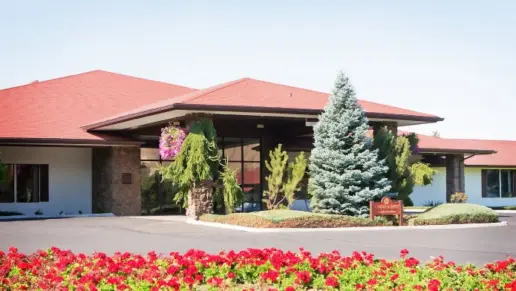I am reading the reviews below and wanted to share my experience. I was at the Clearing in September and had a powerful and transformational experience. We had a group of 8 and I remain in contact with most of my group. I attended for help with lifelong anxiety and panic spi ...
About The Clearing
The Clearing is a non-12 step, dual diagnosis, residential treatment program that focuses on healing the underlying core issues causing the addiction. The Clearing understands that addiction is not about the substance and it is not about character or will power. The Clearing's participants join a small closed group, that begins and ends together, for an immersive 28-day program in an extraordinary recovery center secluded on San Juan Island, in the Puget Sound of Washington State. The facility is on a beautiful and serene 43-acre estate.
The Clearing focuses on healing the underlying issues that cause addiction and other limiting behavior.
The Clearing is a non-12 Step, dual diagnosis, residential treatment center specializing in alcohol abuse, substance abuse, depression, anxiety, trauma, loss, hopelessness, and other conditions. Recovery takes on a whole new meaning here. The guest will depart from the program with authentic empowerment, clarity, freedom from the bonds of addiction and other debilitating challenges with mastery of the tools and strategies to achieve the life they want.
In healing core issues, the participant will eliminate anxiety, depression, hopelessness, low self-esteem, and the need for substances to cope. The participant will be amazed with how powerful, intellectually engaging and transformative the process is.
Latest Reviews
Rehab Score
Accepted Insurance


Other Forms of Payment
Private insurance refers to any kind of healthcare coverage that isn't from the state or federal government. This includes individual and family plans offered by an employer or purchased from the Insurance Marketplace. Every plan will have different requirements and out of pocket costs so be sure to get the full details before you start treatment.
Self-pay involves paying for treatment out of your own pocket. You can use savings or credit, get a personal loan, or receive help from family and friends to fund your treatment. If you don't have insurance or your insurance plan doesn't cover a specific program, self-pay can help ensure you still get the care you need.
Sliding scale payments are based on a client's income and family size. The goal is to make treatment affordable to everyone. By taking these factors into account, addiction recovery care providers help ensure that your treatment does not become a financial burden to you or your family, eliminating one barrier to care.
Addiction Treatments
Levels of Care
Treatments
Many times Participants have co-occurring disorders, for example substance addiction coupled with depression and/or anxiety. This is known as dual diagnosis, and treatment for both conditions simultaneously leads to more complete healing. The Clearing’s staff is trained to address and treat dual diagnosis Participants. Their unique Spiritual Psychology residential treatment is holistic in nature and perfectly suited for these conditions. They teach Spiritual Psychology Basic Skills and counseling strategies which can provide healing for multiple disorders and conditions concurrently.
A combined mental health and substance abuse rehab has the staff and resources available to handle individuals with both mental health and substance abuse issues. It can be challenging to determine where a specific symptom stems from (a mental health issue or an issue related to substance abuse), so mental health and substance abuse professionals are helpful in detangling symptoms and keeping treatment on track.
Programs


Clinical Services
Eating disorder treatment at the clearing include anorexia, bulimia, binge eating, and dysfunctional eating patterns. Many psychologists and other mental health professionals consider eating disorders to be food addictions, meaning food is being used in an addictive way (similar to drug or alcohol addiction). Certain substance abuse treatment programs will have treatment for eating disorders as one of the services offered. An eating disorder may also present as a co-occuring disorder or dual diagnosis alongside drug and alcohol addiction.
Group therapy is any therapeutic work that happens in a group (not one-on-one). There are a number of different group therapy modalities, including support groups, experiential therapy, psycho-education, and more. Group therapy involves treatment as well as processing interaction between group members. The Clearing offers three group sessions per week.
In individual therapy, a patient meets one-on-one with a trained psychologist or counselor. Therapy is a pivotal part of effective substance abuse treatment, as it often covers root causes of addiction, including challenges faced by the patient in their social, family, and work/school life.
Life skills trainings involve all the skills a person must have in order to function successfully in the world. These include time management, career guidance, money management, and effective communication. Truly successful addiction recovery is based on the ability to not only live substance-free, but to thrive. Life skills teaches the practical necessities of functioning in society, which sets clients up for success in life, and therefore sobriety.
Rational Behavior Therapy (RBT) is a form of cognitive behavioral therapy meant to be short-term and comprehensive. It was intended to help clients become more self-sufficent and move forward without the need for expensive, ongoing therapy. It includes an emotional self-help method called “rational self-counseling,” the purpose of which is to give clients all the skills needed to handle future emotional issues by themselves, or with significantly less professional help.
Trauma therapy addresses traumatic incidents from a client's past that are likely affecting their present-day experience. Trauma is often one of the primary triggers and potential causes of addiction, and can stem from child sexual abuse, domestic violence, having a parent with a mental illness, losing one or both parents at a young age, teenage or adult sexual assault, or any number of other factors. The purpose of trauma therapy is to allow a patient to process trauma and move through and past it, with the help of trained and compassionate mental health professionals.
Amenities
-
Private Setting
-
Gym
Accreditations

LegitScript has reviewed The Clearing as part of their certification program, and has determined that it meets the LegitScript standards for legality, safety and transparency.
LegitScript verified in February 2020

The Substance Abuse and Mental Health Services Administration (SAMHSA) is a branch of the U.S. Department of Health and Human Services. Established in 1992 by congress, SAMHSA's mission is to reduce the impact of substance abuse and mental illness on American's communities.
SAMHSA Listed: Yes

State Licenses are permits issued by government agencies that allow rehab organizations to conduct business legally within a certain geographical area. Typically, the kind of program a rehab facility offers, along with its physical location, determines which licenses are required to operate legally.
State License: Washington
License Number: 160600
Contact Information
2687 West Valley Road
Friday Harbor, WA 98250









